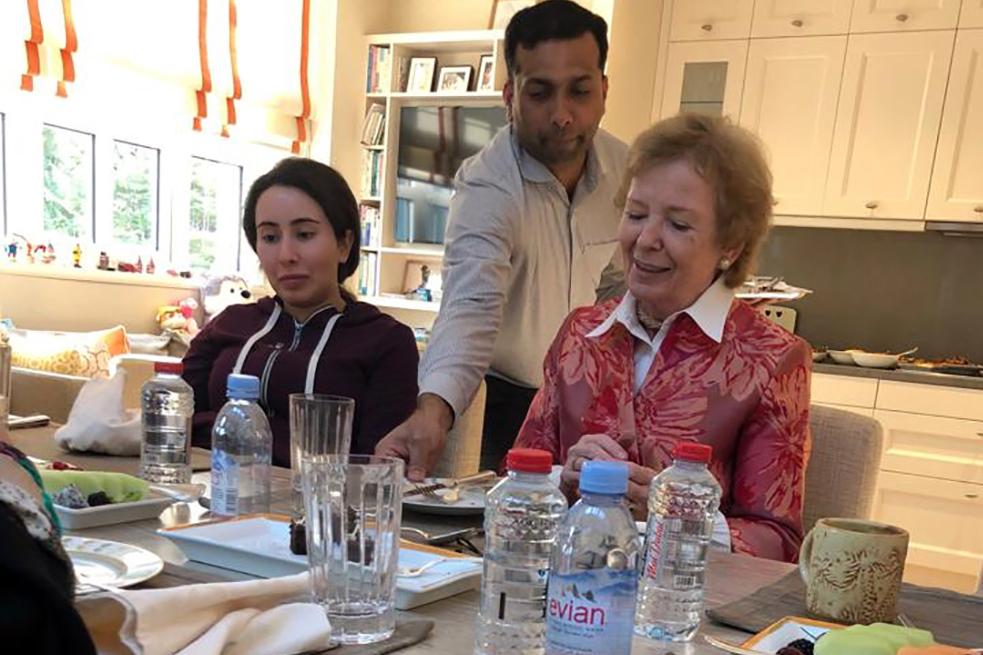Peter O’Dwyer
January 7 2019, The Times
Mary Robinson has explained her meeting with a runaway Arab princess to the United Nations’ human rights watchdog.
The former Irish president contacted Michelle Bachelet, UN high commissioner for human rights, after facing criticism over a trip to Dubai where she was pictured with Sheikha Latifa bint Mohammed al-Maktoum.
The princess tried to flee Dubai after claiming that she had suffered years of abuse at the hands of her family. She is the daughter of Sheikh Mohammed bin Rashid al-Maktoum, the ruler of Dubai and prime minister of the United Arab Emirates (UAE).
Mrs Robinson met with Sheikha Latifa, 33, at the request of Princess Haya bint Hussein, one of Sheikh Mohammed’s wives. She said that Mrs Robinson had been invited after the UN had asked for “proof” that Sheikha Latifa was still alive.
“I called her specifically with a question because I had seen a correspondence from the special procedures branch of the UN high commission for human rights,” Princess Haya told RTÉ’s Marian Finucane Show. “And the reason that this correspondence had such a shattering effect on me is simply the fact that we were being asked for proof of life, and being asked to prove that someone we love — that I love — is simply alive is absurd.”
In the wake of the controversy, Mrs Robinson, a former UN human rights chief, said that she had prepared a report on her visit for Ms Bachelet.
The high commissioner’s spokeswoman confirmed that her office had received correspondence from Mrs Robinson. She said the UN Working Group on Enforced and Involuntary Disappearances, which is independent of the UN human rights office, had been dealing with the case even though the UAE is not party to the convention on enforced disappearances.
Photographs of Mrs Robinson with Sheikha Latifa were released by the family on Christmas Eve to rebut what they said were “false allegations” that she had been returned home against her will. The photos were the first time Sheikha Latifa had been seen since her attempted disappearance.
Mrs Robinson then released a statement expressing dismay at media comments about her role in the controversy. She said she had visited Sheikha Latifa in good faith and repeated a claim that the princess was “vulnerable”.
“On my arrival in Dubai I received extensive briefings and it was clear to me that Princess Haya had particular concern for the welfare of Sheikha Latifa, whom she described as troubled and quite vulnerable,” Mrs Robinson said.
“During my time with her Sheikha Latifa presented as a likeable young woman with a wide range of interests but her vulnerability was apparent.”
Mrs Robinson’s comments have been criticised by a legal firm representing Sheikha Latifa and a human rights group which questioned how Mrs Robinson concluded that the issue was now a “family matter”.
In March 2018, Sheikha Latifa tried to reach India with the help of Hervé Jaubert, 62, a former French secret agent, but a luxury yacht they were on was boarded by the Indian coastguard after it was stopped off the coast of Goa.
Human rights groups had raised concerns about the princess’s safety because she had not been seen in public or heard from since she was returned to Dubai. In a video, which she said she had recorded before the escape, the princess said that her father had been holding her against her will.
